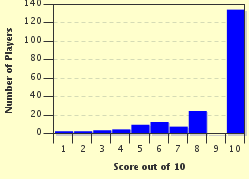
On the Origin of.... Writers! Trivia Quiz
Your task is to match the famous writer of fiction to the place where they were born. Some should be easy, others a little more challenging as I'm only providing the city/town name not the country!
A matching quiz
by MikeMaster99.
Estimated time: 3 mins.
